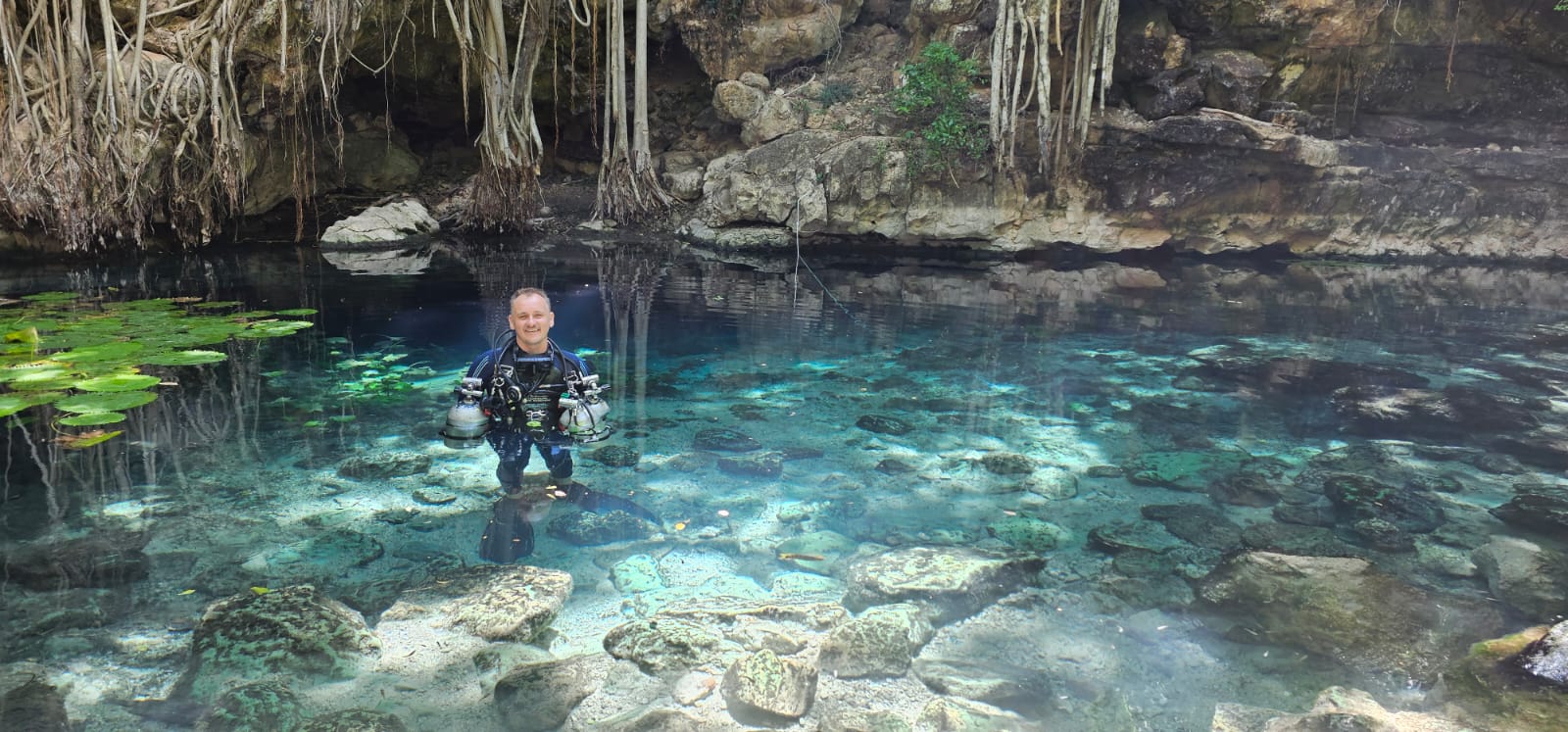Things I Learnt Becoming a Cave Diver
Posted on Thu 30 October 2025 in Principles • 4 min read
I've spent 6 months this year living in Mexico to learn Spanish but also to become a full cave diver! This has been a life changing experience which I'll forever hold close to my heart. I can honestly say I chased my dreams and achieved them, beyond proud of myself. I first visited Mexico in 2023 where I dove in cenotes, which I was mesmerized by the way light dances in from the outside world, and comforted by the peace of the darkness in the caverns.
Discovering my personal limits when it comes to diving, finding mammoth bones, magically formed stalactites & stalagmites and more made me fall even more in love with the world we have around us. I'll never forget the places I've gotten to explore and the people I've shared this passion with along the way.
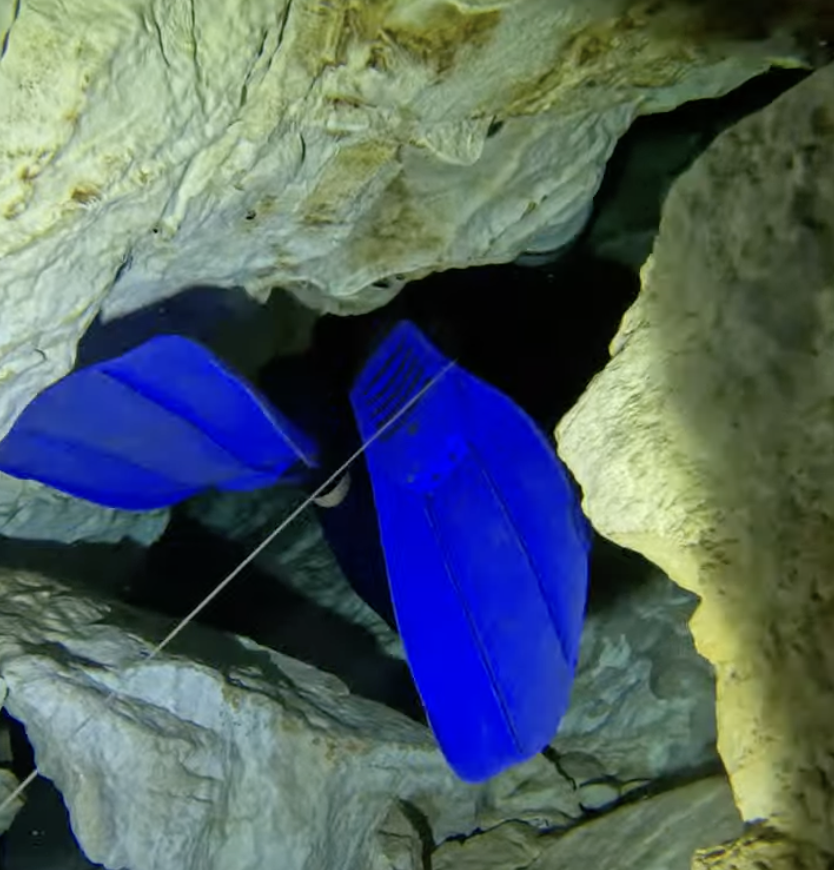
Only ever have one thing in your hands
Whether it's a torch, a camera, or a reel, focus on one thing at a time (this will become a common theme). Having more than one thing to focus on in a potential life/death decision is asking for a bad time. Prioritise, handle one thing at a time and use this focus to execute what you need to do.
One problem at a time, accidents happen when problems cascade
Accidents rarely happen from one thing going wrong on it's own, but when one problem turns into three problems, accidents arise. If things start to go wrong, take a deep breath, slow down, solve one thing a time and control what you can.
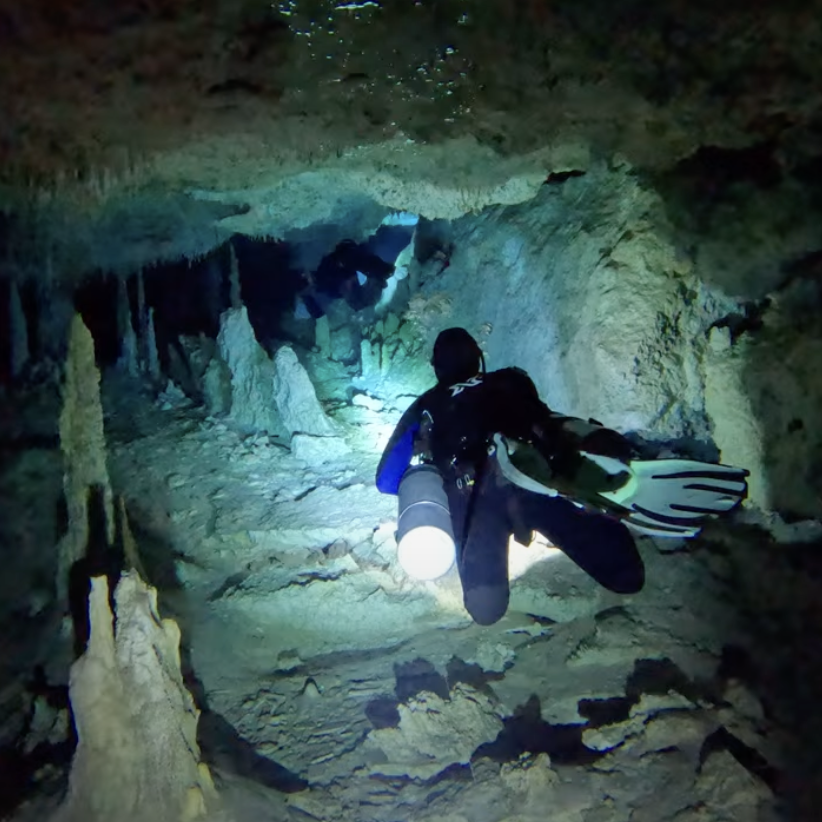
Whenever a problem starts, check your surroundings first, if you're in a space that might create more problems, solve that first
Following on from above, when a problem does come up (ie, running low on air, torch going flat) look around you to see if the space itself will become a problem on it's own. For example, can you turn around comfortably without silting out the space or damaging the cave? Ensure the space is safe to solve the problem before focusing on each issue sequentially.
Plan your dive, and dive your plan, everything falls back to how prepared you are, so if you do all the preparations, you fall back to your level of preparedness
As with anything, especially in an environment you can't use words, planning and deciding what you will do before a dive will set you up with a level of success before you've even got your toes wet (literally).
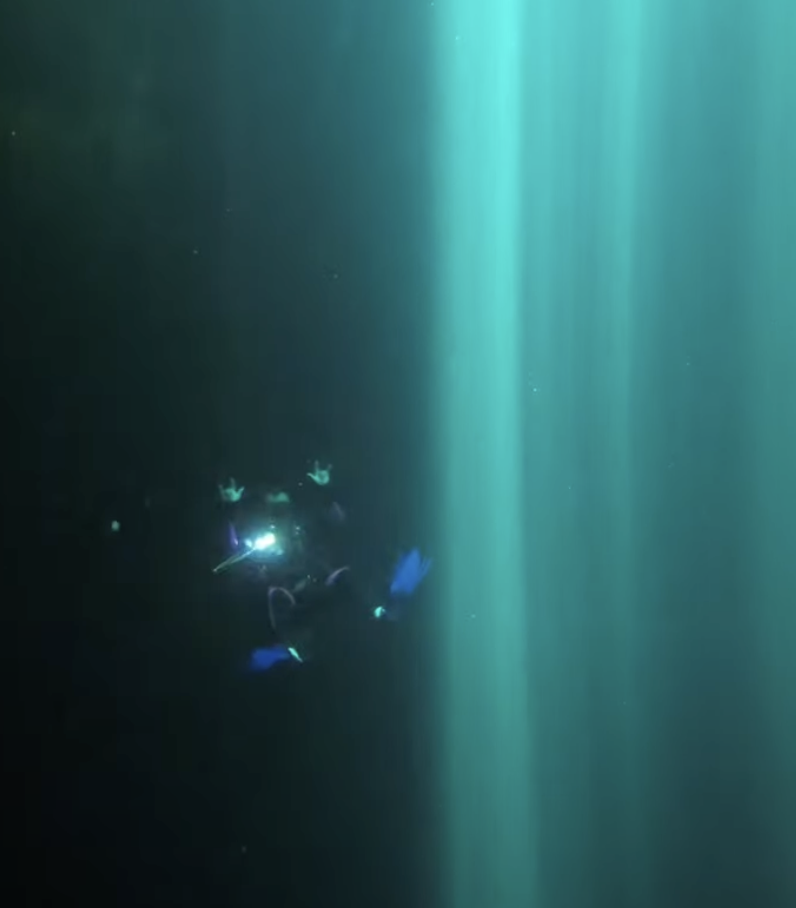
Remaining calm, whenever you're attempting a task, ensure the fundamentals are right before continuing, buoyancy, etc
When even your breath changes where you physically are, when you go to do anything, even if it's as straightforward as placing a marker on a line, ensuring the fundamentals are right before continuing is critical. You're better off being comfortable in your current state before trying to rush anything.
No room for error, mark everything you need to
When the decision between did I turn left or right when coming back from a dive plan is a potential life or death choice. Ensure you've marked everything you could ever need such that future can work it out even if the environment has changed on the way back!
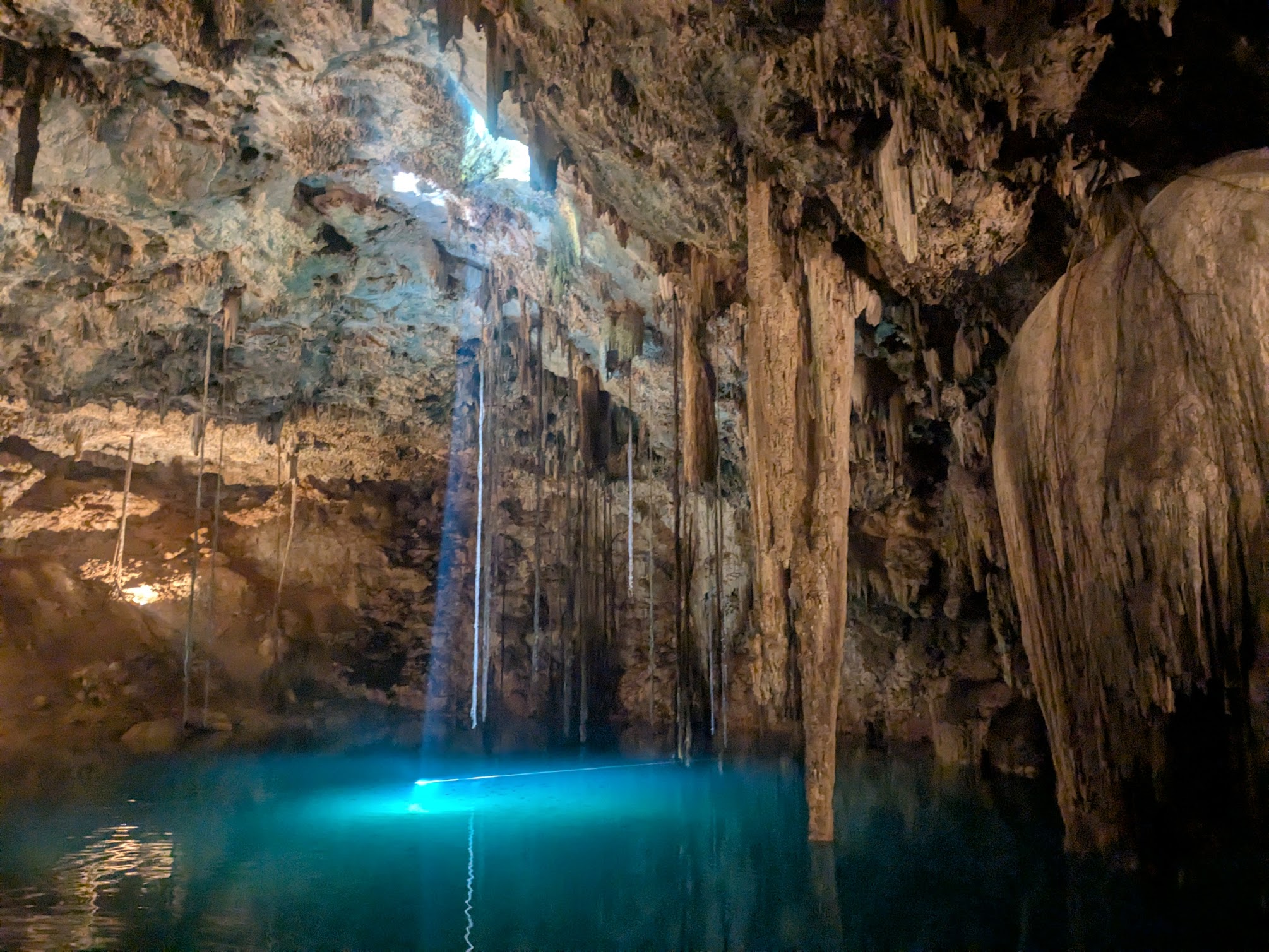
It's not always about exploring new things, executing a plan has a lot of satisfaction
This one was a surprise to me, but it's not always about conquering the next mountain, or the next cave. There is a lot of satisfaction in simply planning a dive, and executing it flawlessly all according to plan.
Face your target, whether it's a line your connecting to or where you're headed in life, the best foot forward is to face it
Quite the obscure one I never expected to learn, I noticed that when at depth (>40m deep) you physically can't think straight, and if you're connecting one line to another, facing where you want to be headed before beginning your first connection ensures that all you need to is look up and start heading towards the second line you intend on connecting to. Reducing room for error, and ensuring safety with quite the easy habit.
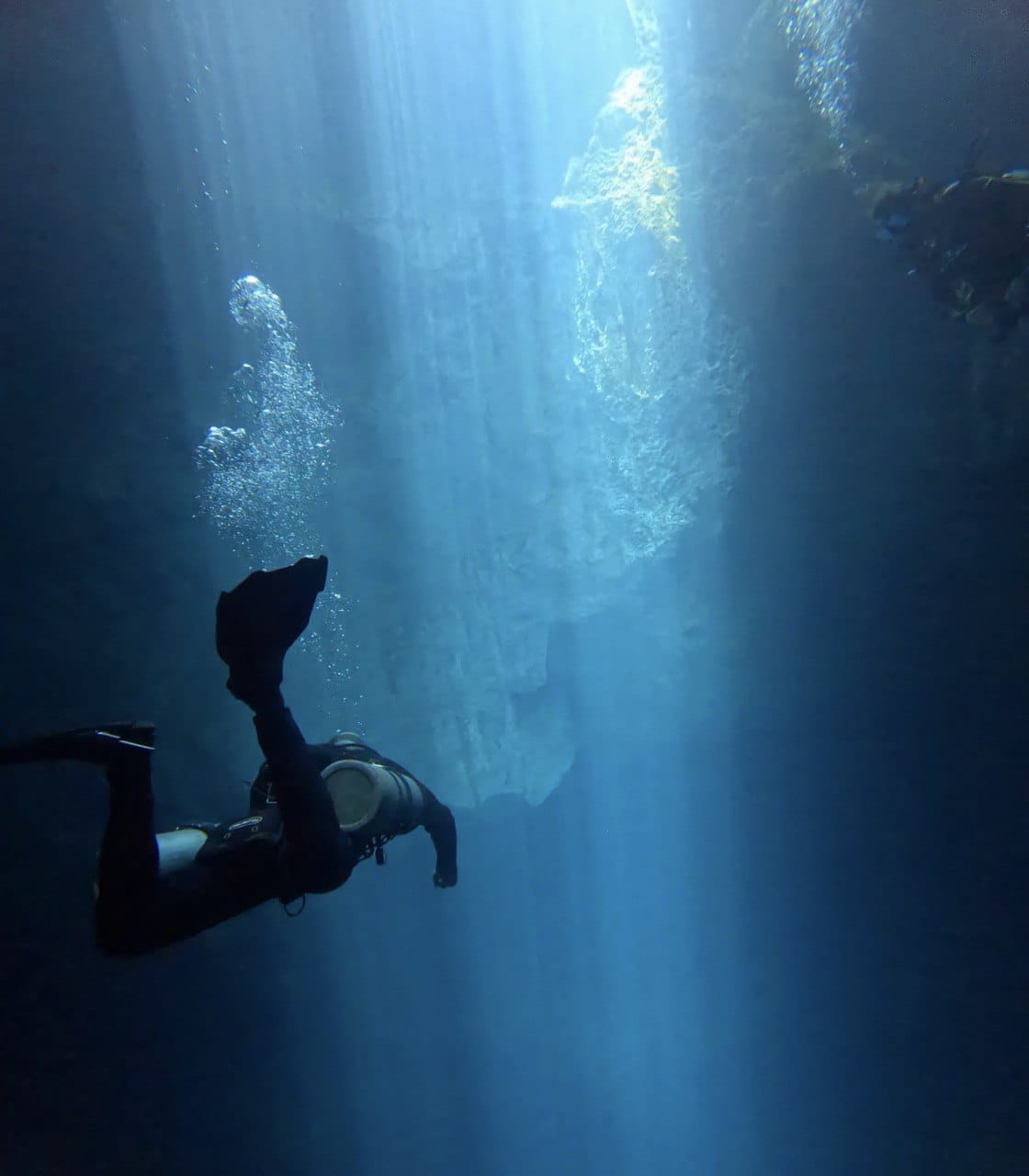
Safety rules are written in blood, a lot can be learned from others situations
A part of your training is to do accident analysis, where you learn what others did incorrectly unfortunately leading to their deaths. Most of our safety rules are written in blood, someone else has likely paid the hard price for us to build systems and safety into our lifestyles so we can continue living.
Anyone can call a dive at any point, for any reason
Everyone knows their own limitation and situation better than anyone else ever will, so the rule in cave diving is if anyone wants to end the dive, it's no questions asked and I love this mindset when it comes to an activity that not only puts yourself at risk but others too.
